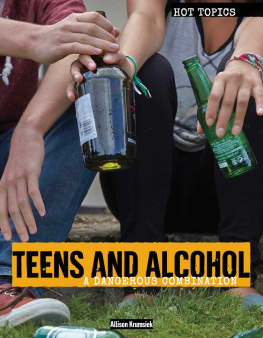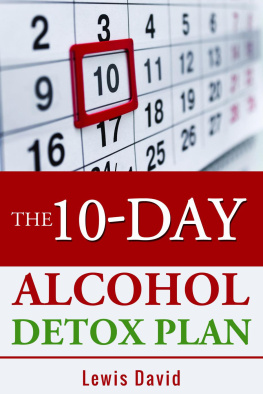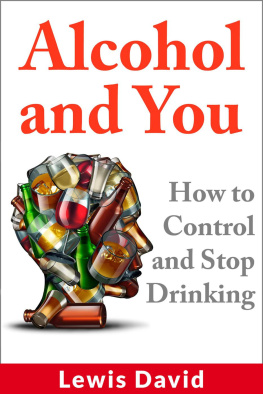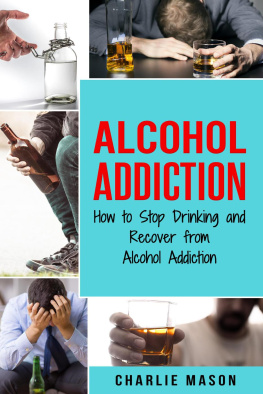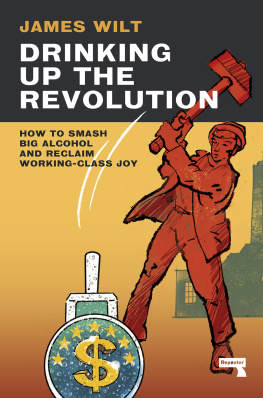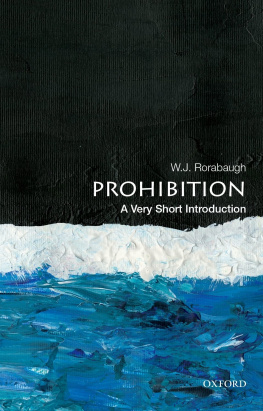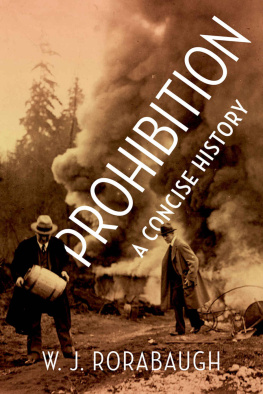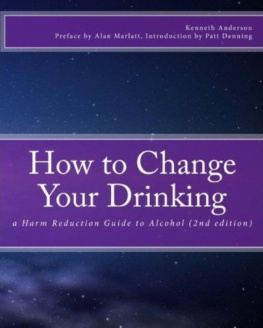Paying the Tab
Paying the Tab
THE COSTS AND BENEFITS
OF ALCOHOL CONTROL
Philip J. Cook
PRINCETON UNIVERSITY PRESS
PRINCETON AND OXFORD
Copyright 2007 by Princeton University Press
Published by Princeton University Press, 41 William Street, Princeton, New Jersey 08540
In the United Kingdom: Princeton University Press, 3 Market Place, Woodstock,
Oxfordshire OX20 1SY
All Rights Reserved
Library of Congress Cataloging-in-Publication Data
Cook, Philip J., 1946
Paying the tab : the costs and benefits of alcohol control / Philip J. Cook.
p. cm.
Includes bibliographical references and index.
ISBN-13: 978-0-691-12520-6 (hardcover : alk. paper)
1. AlcoholismGovernment policyUnited States. 2. AlcoholismUnited StatesPrevention. 3. Alcoholic beveragesTaxationUnited States. I. Title.
HV5292.C615 2007
363.410973dc22 2006036836
British Library Cataloging-in-Publication Data is available
This book has been composed in Sabon
Printed on acid-free paper.
press.princeton.edu
Printed in the United States of America
10 9 8 7 6 5 4 3 2 1
To Judy
Contents
List of Illustrations
FIGURES
TABLES
Preface
IN MY LIFETIME no president has thought to declare a war on alcohol. There is no perception of an alcohol-abuse crisis. Indeed, its hard to imagine the anti-drinking fervor that my grandparents experienced in the early decades of the twentieth century. In Western culture today, drinking is intrinsic to the good life, especially for the more youthful, prosperous, and better educated among us. In the academic community, for example, its unusual to find someone between the ages of twenty and seventy who abstains except for a specific medical reason, and wine is held in far higher regard than, say, sugary sodas.
But of course the problematic nature of alcohol remains, even if it is not widely condemned. Alcohol abuse is all too prevalent, and an endemic source of harm in the form of injuries, early death, unfulfilled potential, family strife, crime, and violence. Like most everyone else, I have colleagues, relatives, and friends whose lives have been cut short or severely diminished as a result of alcohol abusetheir own, or someone elses. These sad stories add up across the population to a considerable sum, whether accounted in terms of the public health or economic lossesin effect a large bar tab that is broadly shared and reduces our standard of living. The cumulative effect is much greater than the toll from illicit drugs. A war is not called for, but alcohol surely deserves our serious attention.
What Ive learned after years of researching these matters is that the tab is much larger than it needs to be or should be. An important remedy has been neglectedthe systematic regulation and taxation of the industry. As a result, beer and liquor have become too cheap and readily available, a big change from the 1950s and 1960s that facilitates excess consumption. My aspiration for this book is to make the case for reviving alcohol-control policy to help right the balance between the two sides of this problematic commodity, conveying as it does such harm and such pleasure.
My focus throughout is on the United States. Alcohol abuse is a worldwide problem, and the control of alcohol has engendered an extensive international literature, particularly in Britain, Ontario, and the Nordic countries, as well as the World Health Organization and other international agencies. I draw on that literature in developing the intellectual framework, but my data and the specifics of the policy discussions are more narrowly cast.
My understanding of alcohol policy owes a great deal to an exceptional opportunity I had early in my career. In 1978, I was invited to join an expert panel of the National Academy of Sciences, which was charged by Congress with assessing alternative strategies for reducing the burden of alcohol abuse. At the time my only knowledge of alcohol was personalI had no systematic knowledge of the alcohol-abuse problem or the policy response to this problem, or of what the scholarly literature had to offer. I was invited to join the panel in the hope that an outsider might bring a fresh perspective. As a result, I was fortunate enough to receive an informal tutorial from some of the giants of the fieldWolfgang Schmidt, Robin Room, Dan Beauchamp, Tom Schelling, and others. The chair of the panel, Mark Moore, encouraged me to conduct original research on the effects of alcohol taxes on drinking and consequences, a project which became my first publication in the area, and indeed the first analysis of a type that has now become commonplace. The research that has accumulated since then, mine and many others, provides the evidence base for the policy conclusions in this book. The intellectual framework owes a good deal to those discussions we had three decades ago under Mark Moores inspired leadership.
Since the publication of the panel report in 1981, much of my continuing research in this area has been with colleagues. George Tauchen and I collaborated on two papers in the early 1980s that introduced panel-regression methods to evaluate policy changes in the health-behavior field. Michael Moore and I worked together for a dozen years in a fruitful and enjoyable collaboration that began in 1990 when I spent a semester at Dukes Fuqua School of Business. (Weve also shared some bottles of good wineusually hisalong the way.) My doctoral student, Bethany Peters, wrote her dissertation on the effects of drinking on productivity, and of this volume borrows from our joint work, first distributed as a National Bureau of Economic Research working paper.
Writing this book has been on my agenda for quite a few years, and I thank Princeton University Presss Peter Dougherty for his patience and encouragement during that long latency. The opportunity to actually write it finally came as the result of my good fortune in winning an Investigator Award from the Robert Wood Johnson Foundation.
In doing the research, Ive relied to a considerable extent on assistance from Duke students. First and foremost has been Rebecca Hutchinson, who did the statistical programming on NESARC (National Epidemiologist Survey on Alcohol and Related Conditions) data and helped in myriad other ways. Her can-do attitude carried us through many a challenge. Others who helped along the way include Samantha Abzug, Ellen Goodwin, Michelle Madeley, Robert Malme, Chinmay Shah, Paul Stahle, and Swee San Tan.
I am also grateful to those who provided me with data and source materials, including Janice Brown, Charlie Clotfelter, Gerhard Gmel, Mike Grossman, Laurel Hourani, Sara Markowitz, Inas Rashad, and Robin Room.
Kristin Goss read through an early draft and in her diplomatic fashion helped me bring it into focus. Dan Beauchamp provided helpful comments on . I also thank my editor, Tim Sullivan, for his valuable guidance on structuring the argument. Various friends and family members have weighed in on the question of the best title, and I hasten to say that there were many good ideas but inevitably only one slot, which was filled by Matthew Leebergs suggestion with an assist from Jens Ludwig.
Making the case for a stronger alcohol-control policy faces a real marketing challenge. Unlike treatment, where the success stories always have a face, those individuals whose lives or livelihoods would be saved by alcohol control will never be identified. There are no heartwarming stories about the girl next door who was not raped, or the classmate who was not paralyzed by a drunken driver, or the uncle who did not become alcohol dependent. The individual stories must be imagined. But it is my hope that the big picture emerges from the history, theory, and statistics presented here.
Next page


